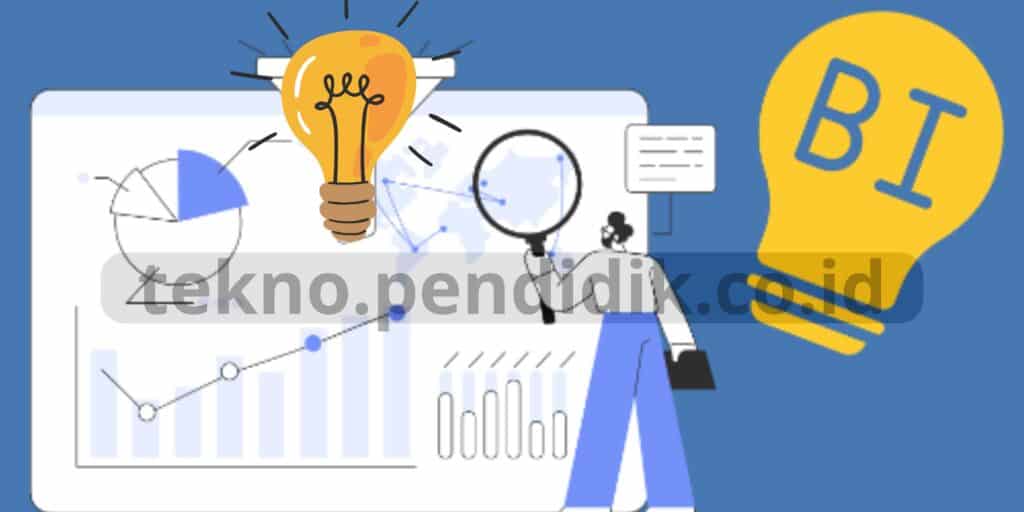In today’s competitive market, both large enterprises and small-to-medium enterprises (SMEs) are realizing that data is one of their most valuable assets. However, raw data alone doesn’t provide much insight until it is processed, visualized, and interpreted. That’s where Business Intelligence (BI) tools come into play. BI tools enable organizations to collect, analyze, and transform data into actionable insights that drive better decision-making.
Whether you are a multinational corporation or a growing SME, the right BI software can streamline operations, enhance customer understanding, and maximize return on investment. Below are the 10 best Business Intelligence tools designed to meet the needs of large businesses as well as SMEs in 2025.
- Microsoft Power BI
Microsoft Power BI is one of the most popular BI platforms on the market. Known for its user-friendly interface and integration with Microsoft Office products, Power BI enables businesses to create interactive dashboards and detailed visual reports.
Why it’s great for large businesses: Seamlessly integrates with Azure, SQL Server, and Microsoft 365 for enterprise-wide data management.
Why it’s great for SMEs: Offers a cost-effective entry point and easy drag-and-drop reporting features, even for teams with limited IT resources.
- Tableau
Tableau has earned its reputation as a leader in data visualization. It allows users to transform complex datasets into intuitive visualizations that make data easier to understand and act upon.
For enterprises: Tableau Server and Tableau Online allow organizations to scale across departments with governance and security.
For SMEs:Tableau Public provides a more budget-friendly way to explore BI capabilities without heavy investments.
- Qlik Sense
Qlik Sense stands out for its associative data model, which allows users to explore data in a flexible, non-linear way. This makes it easier to uncover hidden relationships within large datasets.
For large businesses: Provides enterprise-level scalability, governance, and real-time analytics across vast data sources.
For SMEs: Offers self-service data preparation and intuitive exploration tools without the need for extensive technical expertise.
- SAP BusinessObjects
SAP BusinessObjects is a powerful BI suite often chosen by multinational corporations with large-scale data requirements. It offers advanced reporting, predictive analytics, and integration with SAP’s ERP systems.
For enterprises: Delivers robust enterprise performance management and integration with SAP HANA.
For SMEs: Though more complex, smaller firms using SAP ERP can benefit from its reporting modules.
- Sisense
Sisense specializes in simplifying complex data analytics. Its strength lies in its ability to embed analytics into applications and workflows, providing a seamless experience.
For large businesses:Handles large, complex datasets efficiently and allows embedded analytics at scale.
For SMEs:Provides flexibility and a cloud-first approach, with pricing models suitable for smaller teams.
- Looker (now part of Google Cloud)
Looker is a modern BI platform that leverages a modeling language called LookML to define data relationships. With its cloud-native approach, Looker is a strong choice for companies already invested in Google Cloud.
For enterprises: Ideal for organizations handling massive data warehouses and requiring advanced customization.
For SMEs: Offers easy integration with Google Sheets and other familiar tools, lowering the entry barrier.

- Zoho Analytics
Zoho Analytics is a cost-effective BI solution designed with SMEs in mind, though it still offers robust capabilities for larger firms. With AI-powered data analysis, Zoho provides actionable insights quickly.
For large businesses: Offers scalability and integration with other Zoho business apps and third-party systems.
For SMEs:Budget-friendly, user-friendly, and requires little technical know-how.
- Domo
Domo is a cloud-based BI tool that focuses on collaboration and real-time analytics. Its mobile-first design makes it attractive to businesses looking for accessibility across devices.
For enterprises: Provides powerful integrations with hundreds of data sources and offers governance at scale.
For SMEs: Offers quick deployment, intuitive dashboards, and team collaboration features without heavy IT overhead.
- IBM Cognos Analytics
IBM Cognos is a veteran in the BI space, offering a comprehensive suite for reporting, analytics, and visualization. Its AI-infused features assist with automated insights and predictive modeling.
For enterprises: Highly secure, scalable, and integrates with IBM’s larger ecosystem.
For SMEs: Cloud-based version allows smaller organizations to access advanced BI without heavy infrastructure.
- Oracle Analytics Cloud
Oracle Analytics Cloud provides a full suite of BI capabilities, from data preparation to advanced analytics. It integrates closely with Oracle’s database and cloud ecosystem, making it a natural choice for Oracle customers.
For enterprises: Perfect for companies already leveraging Oracle ERP or cloud solutions.
For SMEs: While enterprise-oriented, its modular cloud offerings let SMEs adopt BI at their own pace.
Key Considerations When Choosing a BI Tool
Before investing in a BI solution, businesses—whether large or small—should evaluate several factors:
Ease of use: SMEs may prefer drag-and-drop simplicity, while enterprises may need more complex modeling capabilities.
Scalability: Large businesses require tools that scale across multiple departments and data sources.
Integration: Consider compatibility with existing software, databases, and cloud providers.
Cost: SMEs should focus on affordable, cloud-based tools; enterprises can invest in advanced features that justify larger budgets.
Support and training: Adequate vendor support and user training ensure adoption and long-term success.
Conclusion
Business Intelligence tools are no longer a luxury reserved for Fortune 500 companies. With today’s diverse offerings, both large businesses and SMEs can harness the power of data to improve decision-making, enhance efficiency, and uncover new opportunities.
From enterprise-heavyweights like SAP BusinessObjects and Oracle Analytics Cloud to SME-friendly solutions like Zoho Analytics and Microsoft Power BI, there is a BI tool suitable for every organizational need and budget.
In 2025 and beyond, companies that leverage the right BI solution will have a decisive edge over competitors, driving smarter strategies and stronger growth.